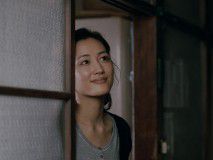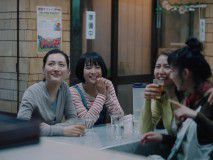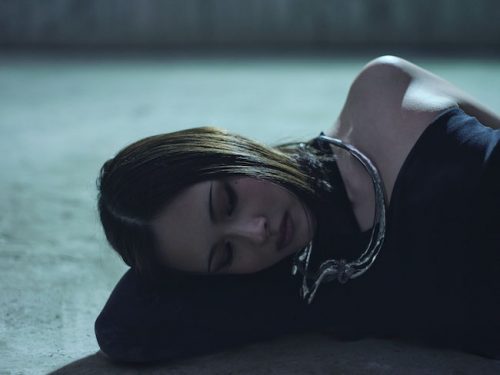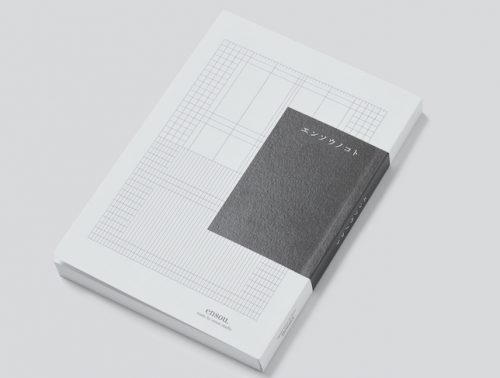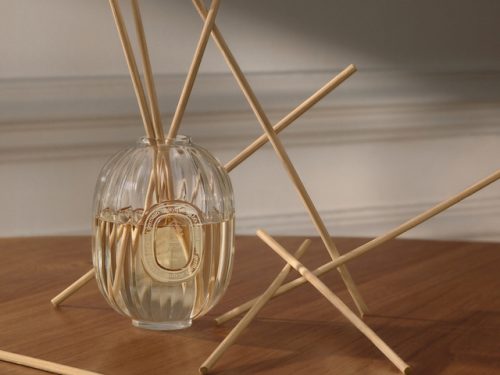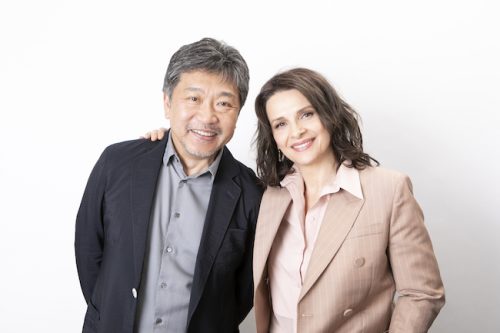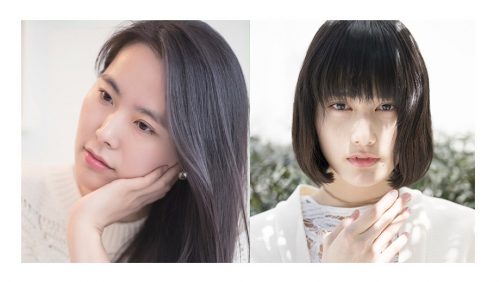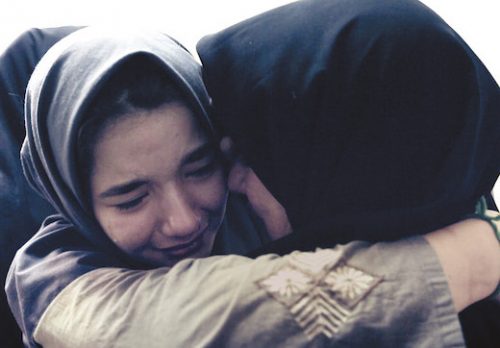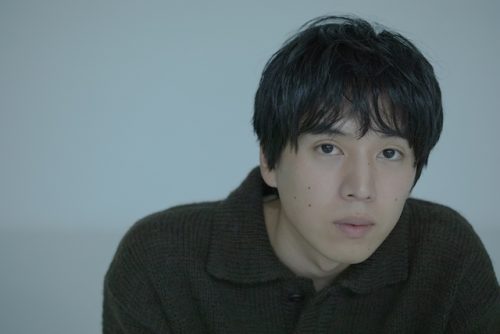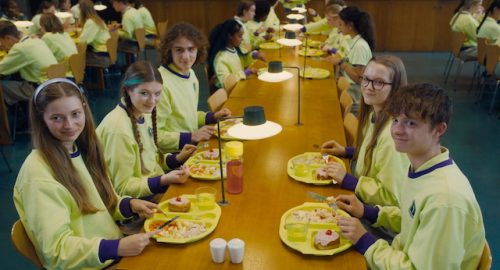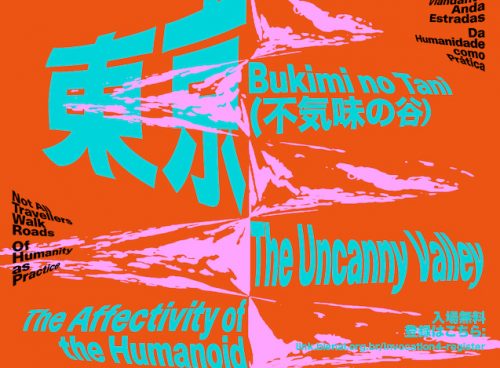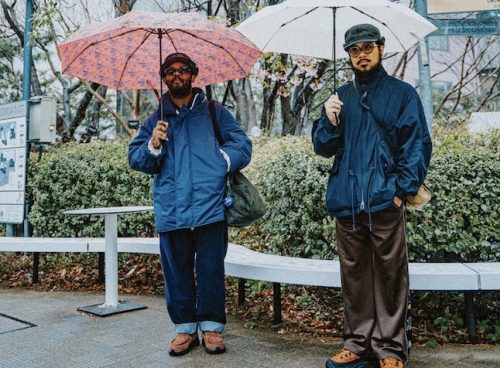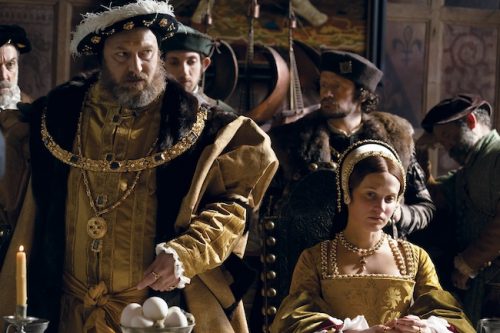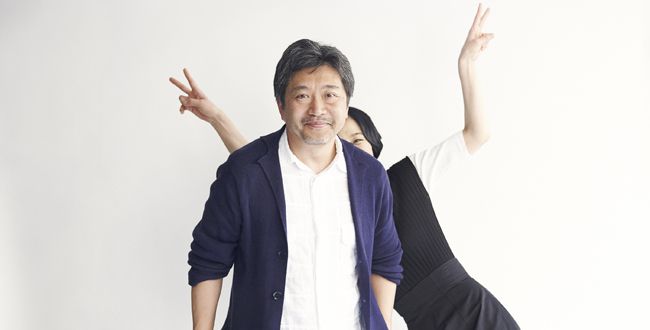
──二人の間にグルーヴが生まれたんですね。四女のすずが長女の幸に初めて胸の内を吐露する重要なシーンにも、柔らかな曲が重ねられています。ハープが奏でるテーマの旋律が、ごく控え目にさらりと。音楽の量自体、これまでの作品に比べると増えているのでは?
是枝「多いですね、たしかに。ただ菅野さんが上げてくれる曲は、本当に絶妙にセリフの間と絡んでいて。役者のお芝居を全然邪魔してないんです。だから音楽が増えたと感じさせない。そこがすごいなと」
──物語の中では、印象的なメインテーマが何度も変奏されます。ピアノだけでさらりと弾いている場面もあれば、ストリングスや管楽器と絡めているシーンもありますが、このようなバリエーションはどう付けたのでしょう?
菅野「やっぱり四季の変化をイメージしつつ、例えば秋のシーンなら、ちょっと角笛っぽい音色を入れてみたり。あとはすずちゃんの成長に合わせ、テーマの“歌わせ方”のニュアンスをちょっとずつ変えていったり。そういう細かい作業はしていますね」
──ちなみに劇中で、すずがクラスメートたちと鎌倉の海岸で名物のしらすを揚げるシーンでは、ピアノに加えて女性コーラスが入っていますが……。
是枝「あれはね、僕の希望なの」
──インストゥルメンタルではなく、人の声を用いているのはあのシーンだけですね。どういう理由があったのですか?
菅野「それそれ、私も知りたかったの!」
是枝「あそこで一番、物語の光が変わるから。その直前、四姉妹が窓から庭を見下ろす大事なショットがあるんですね。一つの窓から、四人が同じ風景を眺めている。それが終わったところで、全体の光がふわーっと明るくなるから。それこそ音楽みたいに、そのタイミングで“転調”したかった」
菅野「そうだったんですね。私はあのシーン、画面から漂ってくるしらす丼の匂いと、監督が望まれる美しい女性ヴォーカルとがなかなか噛み合わなくて(笑)。ちょっと苦労しました」
是枝「そうだったんですか?」
菅野「私の中ではもう、しらす丼の美味しい匂いがしちゃってるので(笑)。最初はうまく寄り添えなかったんです。でも、『あ、そうか。私が匂いをかがなきゃいいんだ』と気付いて。気持ちを空から見ているモードに持っていったら書けました」
──物語のエンディングでは、メインテーマとはまた違った旋律が採用されています。クラリネットの、優しく歌いあげるような雰囲気が印象的でした。
菅野「こうやって振り返ると、私、『弦カルでお願いします』っていう最初の発注をほとんど守ってないですねぇ」
是枝「はははは。たしかに(笑)」
菅野「何だろう……やっぱりダイアリー(日記)なので、『いろいろあったけれど、時は過ぎます』みたいな感じを出したかったのかな。先ほど監督は『お芝居に寄り添った』と仰ったけれど、私の中ではやっぱり、ページをめくるごとに音楽を添えている感覚も強かったんですね。それでいうとエンディング曲は、『……っていうお話でした』と日記帳を閉じる感覚。それを、たぶん是枝さんの希望より2%ぐらい、勝手にエンターテインメント寄りに盛って締め括った感じだと思います(笑)」
是枝「いえいえ、そんなことないですよ。あのエンディング、すごくよかったです。最後にぴったりのバランスでした」
──初めてのお仕事で、おたがいに新しい発見があったみたいですね。
菅野「うん。私はすっごくありました。そもそも音楽って、人の感情とか情緒に寄り添うことが得意な表現ジャンルなんですけど。今回みたいに人ならぬもの──“時間さん”に当てるという経験はなかなかできないので。それはすごく面白かった。それと、お話しするとどんどん変わっていくところ(笑)。こういうグルーヴィーな監督さん、実はなかなかいらっしゃらないなぁと」
是枝「そうやって上げていただいた曲を聴きながら、僕の方も、そのシーンが持つ意味合いみたいなものを再確認できました。面白いのは、そうすると編集そのものが変わっていくんですね。そう、今思いだしたけど、最後に『これで一応できたかな』という編集バージョンをお送りした際、菅野さんから『これで是枝さんの作品になった気がします』って返信をいただいたんですよ」
菅野「それって、最後の方ですか?」
是枝「そう、最後の最後。そのとき、あぁよかったなぁと思ったんです。もちろん二人でキャッチボールをしながら編集の相談をしているわけじゃなく、あくまで音楽について話してたわけですけど。それが映画そのものに影響し、結果的にはすごく的確に導いてくれた気がするんですね。本来、この物語が向かうべきだった場所に」
──So you had this groove between you. One of the major scenes where the youngest sister, Suzu, was pouring her heart out for the first time to the eldest sister, Sachi, has this very soft music. It’s a harp tune, like a very discreet echo. Would you say that the overall amount of music, though, has increased compared to your other movies?
Koreeda: Yes, I would say so. Ms. Kanno’s music, though, is like ivy climbing unnoticed through the lines. It never comes in the way of the acting, so it doesn’t really feel like there is a lot more music. I think she’s done a pretty incredible job.
──There are many variations of the memorable main theme inside the story. You have scenes with just piano music, and then you have strings and winds as well in other scenes. How did you come up with all these variations?
Kanno: As I said, I was trying to express the changes of the four seasons, so I used a horn-like sound in the autumn scenes, for instance. I also tried to change the nuance of the interpretation of the theme to match Suzu’s growing up into an adult. I like such details.
──If I remember correctly, in the play, when Suzu and her classmates are frying whitebait on the beach at Kamakura, there was a female chorus in addition to the piano…
Koreeda: Oh, that? Actually, I asked for it.
──That is the only scene that is not instrumental, but has human voices. What was the reason for choosing the chorus?
Kanno: That I wanted to know too!
Koreeda: Well that is the scene where the light of the story changes the most. Right before that you have a very important shot in which the four sisters look down at the garden from their window. The four of them look at the same landscape from the same window. After this shot, the overall light just brightens up. It’s why I wanted what in music is called “transposition” right at the moment in time.
Kanno: I had no idea. I had actually struggled with that scene, because I could feel the smell of the whitebait on top of the rice, but the director wanted beautiful female voices. (laughs) I had a hard time trying to cope with that.
Koreeda: You did?
Kanno: Yes, for me it was all about the delicious smell of the whitebait and rice. (laughs) At first, I just couldn’t see the two together. But then I told myself: “Just stop smelling the fish!” I imagined I was looking at the scene from above, and everything changed, so I could finally write the music.
──At the end of the story, there is another new tune, completely different from the main theme. That gentle clarinet sound rising up in the air made a huge impression on me.
Kanno: Come to think of it now, I didn’t really stay on course with what I’d been originally asked to do, which was a “string quartet”.
Koreeda: Ha-ha-ha. You’re right. (laughs)
Kanno: I don’t know how it happened… I guess I tried to express the idea of a diary and of “time flying by, unaware of everything that happens”. The director just mentioned “going along with the play”. I also felt as if I was turning the pages of this diary and adding drops of music here and there. For this reason, the last melody is like saying “The End” and closing the diary. I’m afraid that was at least 2% more selfish entertainment and a more dramatic finale than the director asked for. (laughs)
Koreeda: No, no, you’re exaggerating. I loved that ending. A perfect last tune that keeps everything in balance.
──It looks as if you both learned a lot working together for the first time.
Kanno: Yes. I know I did. Music is first and foremost a genre that is well suited for expressing feelings and emotions. I consider this a rare opportunity, as I had to match music not to people, but to “time itself”. I had a lot of fun doing it. I also enjoyed talking to the director and adjusting the music as we talked. (laughs) I haven’t met many directors as groovy as Mr. Koreeda, to be honest.
Koreeda: I would listen to the music and it helped me confirm once again the meaning of each scene. I enjoyed how this influenced the editing. Which reminds me, when I sent Ms. Kanno the final edited version and told her “I think it looks pretty good”, she got back to me saying: “It now feels like one of your works.”
Kanno: Are you talking about the end?
Koreeda: Yes, the very last. I thought, “This has been a great experience”. We never talked about editing the picture itself, only the music. But it obviously affected the movie overall, and as a result I feel like I was pointed to the right direction. The very direction that the story was supposed to take.
撮影 中野修也/photo Shuya Nakano
文 大谷隆之/text Takayuki Otani
編集 桑原亮子/edit Ryoko Kuwahara
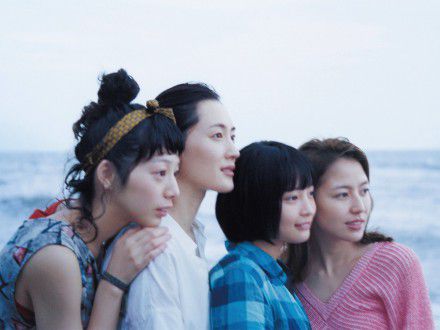
『海街diary』
全国公開中
鎌倉で暮らす三姉妹、幸、佳乃、千佳の元に、15年前家を出ていった父の訃報が届いた。
長い間会ってもいなかった父の葬儀のため山形に向かった三人はそこで異母妹すずと初めて会う。
身寄りのなくなった彼女が、葬儀の場でどうしようもない大人たちの中で毅然とふるまう姿に、
長女・幸は別れ際とっさに口にする。「すずちゃん・・・鎌倉にこない?いっしょに暮らさない?4人で」。
そうして鎌倉での4姉妹の生活が始まる―。
原作:吉田秋生(小学館「月刊フラワーズ」連載)
監督・脚本:是枝裕和『そして父になる』
出演:綾瀬はるか 長澤まさみ 夏帆 広瀬すず
加瀬亮 鈴木亮平 池田貴史 坂口健太郎 前田旺志郎 キムラ緑子 樹木希林
リリー・フランキー 風吹ジュン 堤真一 大竹しのぶ
製作:フジテレビジョン 小学館 東宝 ギャガ
配給:東宝 ギャガ
(C) 2015 吉田秋生・小学館/フジテレビジョン 小学館 東宝 ギャガ
公式サイト:http://umimachi.gaga.ne.jp/
公式Twitter:https://twitter.com/umimachi2015
公式Facebook:https://www.facebook.com/2015umimachi
Umi-machi Diary (Our Little Sister)
In all cinemas across the country
Three sisters living in Kamakura, Sachi, Kano and Chika, receive news about their father’s death, whom they haven’t seen in 15 years.
They travel to Yamagata for the funeral and there they meet their stepsister, Suzu, for the first time.
Suzu has no one left to care for her, and when she sees her trying to act with resolution among useless grownups at the funeral, Sachi, the eldest sister, suddenly asks her before leaving: “Suzu…why don’t you come with us to Kamakura? Let’s live together, the four of us!”
A new life begins in Kamakura for the four sisters–
Based on a manga by Akimi Yoshida (Shogakukan “Monthly Flowers” Series)
Director & Screenplay writer: Hirokazu Koreeda (Like Father, Like Son)
Starring: Haruka Ayase, Masami Nagasawa, Kaho, and Suzu Hirose
Also starring: Ryo Kaze, Ryohei Suzuki, Takafumi Ikeda, Kentaro Sakaguchi, Oshiro Maeda, Midoriko Kimura, Kirin Kiki
Lily Franky, Jun Fubuki, Shinichi Tsutsumi, Shinobu Otake
